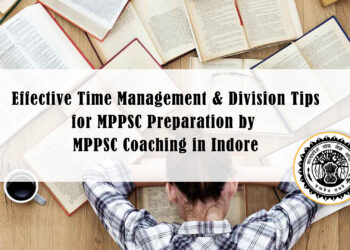Students put a lot of effort into cracking these exams. But sometimes during preparation, they often take things lightly and miss some of the small important things that can become a hurdle later. It is true that competitive entrance exams are not easy but either not impossible. Students can crack the exams with their rigorous hard work and continuous effort. To crack these exams, they would need to excel a few skills that can help candidates get through these exams.
Every year, lakhs of candidates take competitive entrance exams to pursue higher education. In this competitive exams it is not easy to crack any entrance exam as there are only limited seats available. To acquire those seats thousands of students appear for the exam and few will be selected based on their capability and performance. As you know competitive exams can be sometimes difficult for the students as they have to cover vast amounts of the syllabus. This can lead to stress and even anxiety during the preparation.
10 Tips for Success in Competitive Entrance Exams
1. Read & Understand About Exam
The first step is to understand the exam for which you are applying. All competitive exams are different from the others, so it is important to read the guidelines and process carefully before applying for the exam. Students should know what the exam is all about and how it can help in your career.
2. Organize Study Area
Choose a study area that is peaceful and calm. Make sure that you organize your important things for a better learning environment, a comfortable chair and table, light, stationery items, books, etc according to your needs. Everything has to be arranged so that you develop learning with complete concentration and interest. Clean space brings more positivity and confidence and enthusiasm.
3. Explore Syllabus
Before students start preparing for the exam they should explore and understand the syllabus mentioned in the application. They should know about the list of syllabus and content that needs to be studied for the exam. Manage a list of syllabus divided into chapters and units. Candidates should go through the syllabus before starting the preparation. And check the marks allotted for each segment of the syllabus. They can start giving priority based on the weightage to the syllabus and study well for the exam.
4. Plan Timetable
Students should plan and prepare a time table before starting the preparation so that you can study and practice for the exam accordingly. They can include the syllabus on the time table for daily, weekly and monthly basis till the exams are over. Set day and time for each unit on an everyday basis for learning and practicing along with necessary short breaks. While you prepare your study plan, make sure that realistic goals are set for the exam, schedule the hours during the time where you feel most productive and energetic towards learning.
When you look into the study plan, it should appear simple and easy to understand. Set more hours for the complex information than the simple ones. And make sure that the time and chapters set for the day should be strictly followed so that you can complete studying
5. Eliminate Distractions
During the preparation, sometimes students might get distracted with little things around them. They have to focus on understanding the syllabus and concepts for preparation. There are many papers that are mostly filled with analytical questions. So they should focus on understanding them for better learning outcomes. If they are focused and sincere then remembering information is much easier.
It is important to eliminate distractions around them to focus more on cracking the exam. The distractions can be with respect to the overuse of mobile phones, long hours of chatting, playing games, etc. So, it is important to be focused and concentrate on preparing for the exam.
6. Following Healthy Lifestyle
Health is the most important thing in life. One can achieve things only when physical and mental health is fit. Ensure that students take a good amount of sleep in the night during the preparation as lack of sleep can cause tiredness and create a negative impact on exams. Planning a regular routine is very important for a positive mind. Regular exercise and meditation can help in improving concentration levels during the learning process. Make sure that you are not pressurized or distracted by anyone. Taking regular breaks during the preparation is very important for the mind and body.
Adaptive Learning: An Approach to cater all Learning Needs
7. Be Motivated
Students have to be motivated and confident to crack the exam. Remember that motivation can help one achieve your goals. Students have to be surrounded by people who can motivate and support during the preparation. Make sure that you give your best during the preparation and less worry about the results.
8. Practice
Practicing previous papers can bring a lot of difference in your preparation. Sometimes students might go blank when exam papers arrive as the questions seem to be quite different and difficult to understand. In such cases, they can get an idea of looking back into the previous year’s question papers. It can help in understanding the kind of questions that might appear for the exam. Also, it will give you some idea about the topics of high priority. There are many online platforms where you can practice test for better preparation.
9. Time Management
The most important tip that students can apply from the starting day of your preparation is managing time. If they know how to manage your time, cracking these exams becomes easy without any stress or anxiety. Time management is not only for preparation but also for how much time you take for attempting each question in the exam paper. There are online test-taking platforms that can help you with practice and test-taking skills for better preparation and developing time management skills
10. Ask for Help
Students should never hesitate to ask for help if they want to clear doubts or queries on any information regarding the exam. Sometimes they might think of trying hard to get the right information or concepts but it might lead to a wastage of time. Instead, they can approach teachers or friends to clear your doubts.
FAQ’S
Ans You need to track such important concepts from every chapter and go through them as they might be asked again in 2018 board exam. … Most of the board exam toppers lay special emphasis on revision. After you study or learn any topic it is important that you must revise that topic frequently.
Ans Although new discoveries prove that timing may not be everything, it is important if you want to create and perform at your best consistently. That said, science has indicated that learning is most effective between 10 am to 2 pm and from 4 pm to 10 pm, when the brain is in an acquisition mode.
Ans Top Mobile Apps for Competitive Exams Preparation
Entri: PSC, SSC, IBPS, RRB Exam Preparation App.
Prep Guru – Online Mock Test.
Gradeup Best Exam Prep: Previous Year Paper, Quiz, Updates.
MBA Exams Guide.
CATAbility CAT / XAT – MBA Entrance Exam Preparation app.
Pocket Aptitude.
Pocket Logical Reasoning App.
Aptitude & Logical Reasoning App
Ans Pre-schoolers, 3–5 years old, should get around 10–13 hours sleep daily. Kids, 6–13 years old, require 9–11 hours of daily sleep. Teenagers, 14–19 years, should sleep around 8–10 hours. Adults, 20–64 years of age, need around 7–9 hours of sleep.
Ans Only NCERT, book is best for all competition. Follow only class XI and XII NCERT book is must crack any competition like jee mains, NDA, BHU, DU, e.t.c like many more state and national level exam











